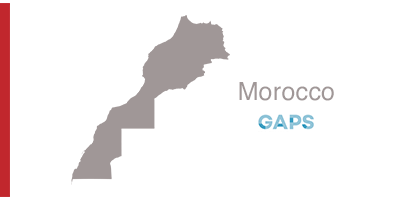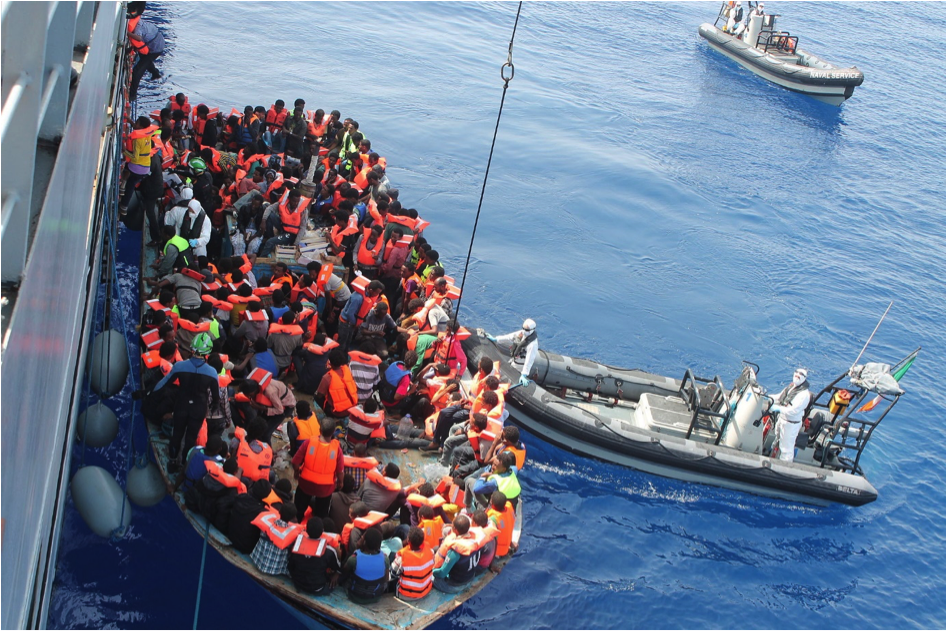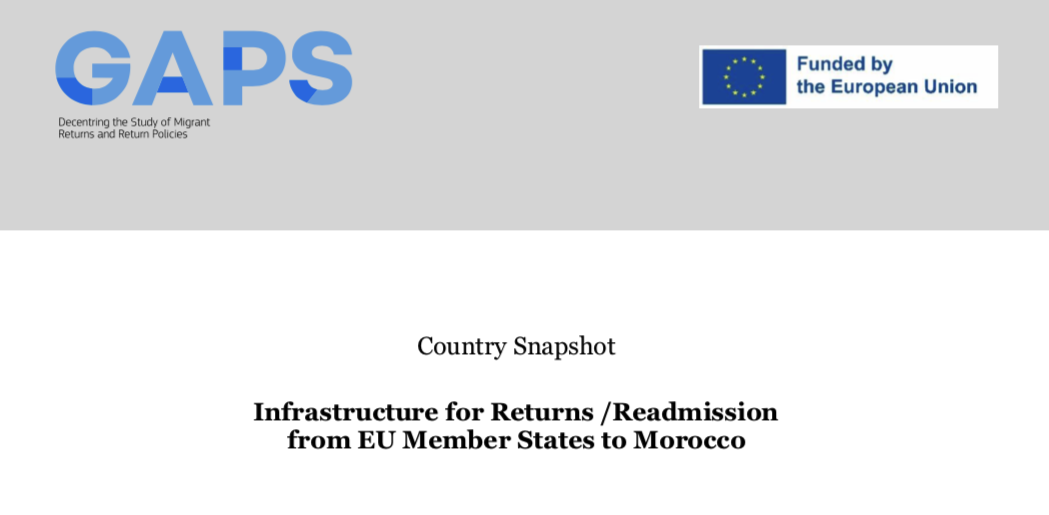Country Profile
GAPs Country Profile: Morocco / Blogs Posts
Deadlock in Morocco and the European Union on Readmission and Alternative Forms of Cooperation
Mehdi Lahlou, AMI
Morocco occupies a strategic position south of the Strait of Gibraltar, at the crossroads of migratory routes between sub-Saharan Africa and Europe. This geographical location confers upon Morocco both a pivotal role in migration flows and significant political leverage in its negotiations with the EU. Consequently, Rabat claims a differentiated treatment compared with other African states.
Since 2000, the European Union (EU) has aimed to establish a readmission agreement with Morocco. Such an agreement would facilitate the return of both Moroccan nationals and third-country nationals (TCNs) transiting through Moroccan territory who are deemed undesirable within the EU. After more than twenty years of negotiations, no agreement has been signed. ..
GAPs Country Profile: Morocco / Publications
In recent years, return migration has become a crucial aspect of European migration policies. Located along the two main routes for irregular migration to Europe, Morocco has served – since the end of the last century - as a transit hub for migrants travelling via the Western Mediterranean route, connecting Morocco with the Spanish mainland, the Balearic Islands, and the Moroccan enclaves of Ceuta and Melilla. Additionally, it plays a role in the Western African Atlantic route, which links the coasts of West African countries to the Canary Islands.
Morocco’s geographical importance requires increased border control, leading to ongoing arrests and pushbacks by national authorities. Morocco aims to facilitate the return of migrants on its territory to their home countries while safeguarding their rights, and also bears the responsibility to manage the repatriation of its migrants from Europe under the best possible conditions, regardless of the circumstances surrounding such returns.
This report explores return aspirations and trajectories of migrants by examining the governance of returns and migrants’ perspectives and experiences on return from Turkey, Morocco, Poland, and Greece. These countries were selected because they can be seen as transit zones - not just as “transit countries” within migration chains, but also frequently in migrants' own accounts of where they are on a mobility trajectory. The report investigates how these countries' return migration governance influences return dynamics, outlining trends in migration, policy evolution, issues in host societies, and socio-political conditions. Additionally, it highlights migrants’ strategic agency in navigating restrictive legal, social, and economic conditions, as well as their experiences in host contexts and their perceptions about further mobility (including return).
This country dossier on Morocco provides a comprehensive analysis of migration dynamics, highlighting the diverse experiences, motivations, and challenges migrants face. Based on 32 in-depth interviews with migrants of different administrative statuses and national backgrounds, as well as national data, the dossier explores Morocco’s role as both a transit and destination country within the broader migration landscape.
Migrants arrive in Morocco for various reasons, including economic hardship, conflict, political instability, and lack of access to basic services in their home countries. Many see Morocco as a stepping stone toward Europe, yet significant barriers often leave them stranded, forcing them to reconsider long-term settlement. Economic hardship remains a primary driver of migration, with many migrants seeking employment to support their families back home.
This report explores return migration governance in the African and Middle Eastern regions and the role of the EU by looking at the governance of coerced returns from Turkey, Lebanon, Jordan, and Iraq to Syria; from Morocco, Tunisia, and Libya to Nigeria; and from Iran and Turkey to Afghanistan.
This study is situated in a CONTEXT where the migration management of the African and Middle Eastern host countries under study has increasingly focused on return.
The AMI team focused on Work Package 4 (WP4) which pertains to the case of return migration between Morocco and Nigeria. We aimed to shed additional light on the unique circumstances of these two countries that influence migration dynamics in both regions.
In addressing the main questions posed by WP4, we examined issues such as: What characterizes the governance of return migration between Morocco and Nigeria? What are the driving forces behind this governance? And how does the European Union's external migration policy shape the modalities of this governance?
To provide comprehensive answers, we first gathered quantitative and qualitative data to assess the scale of return migration from Morocco to Nigeria. We also examined the political and operational frameworks facilitating and regulating these movements.
As part of this effort, we analyzed the primary economic and socio-demographic characteristics of both Morocco and Nigeria. Additionally, we reviewed Morocco’s migration policy since 2013, including the actions and strategies implemented in recent years. Our data collection encompassed all available sources to support our analysis and respond effectively to the questions raised in WP4.







